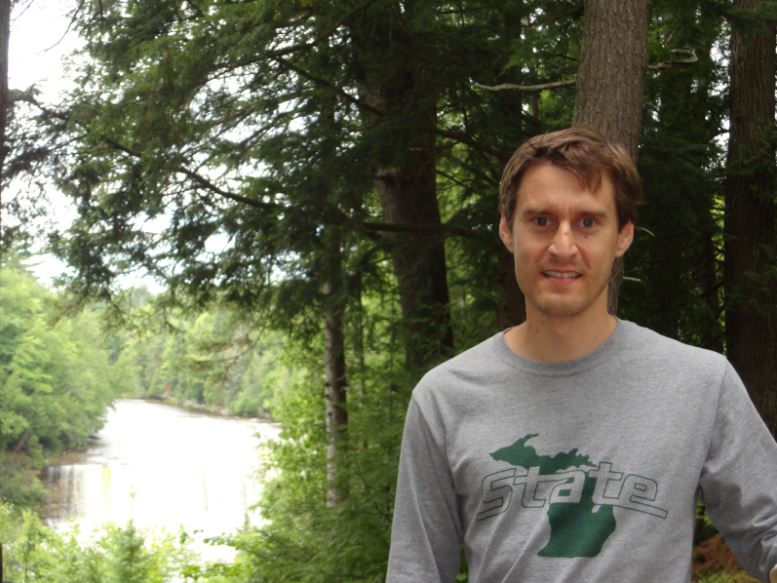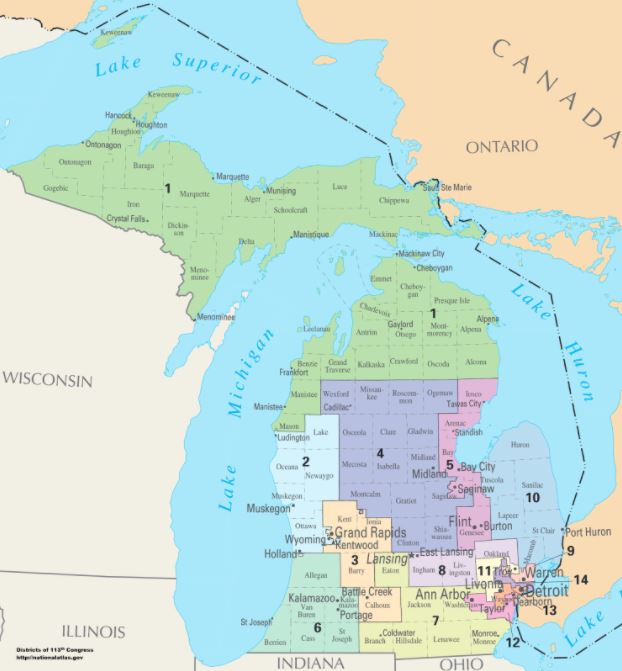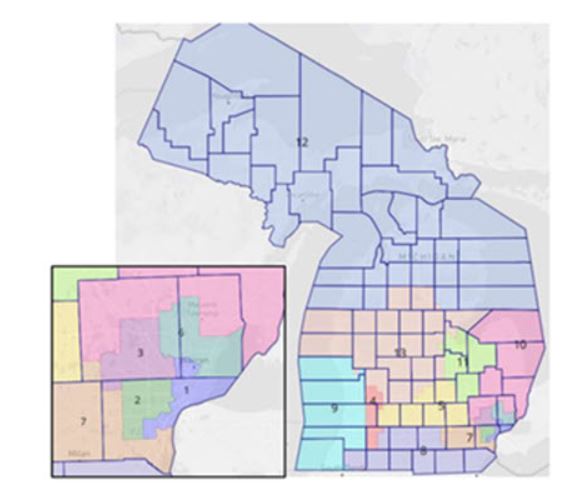MSU economist and social scientist helps Michiganders with the redistricting process
October 27, 2021 - Katie Nicpon

Caption: Jon X. Eguia, Ph.D., Professor of Economics.
“ As a teenager I played the kind of computer games that are about building empires and running them so that all the citizens are happy,” said Jon X. Eguia, Ph.D., eyes alight with the memory. Eguia is a professor in the MSU Department of Economics, and his work reflects his passion from childhood to help citizens and our society.
His most recent research and teaching involves the redistricting initiative in Michigan. The Michigan constitution requires that the 10-year census serves as a basis for redistricting our voting boundaries. Those boundaries guide elections for next 10 years, and play a crucial role in state policy, state taxes, revenues, economic development, right down to the decisions about education in our schools.
When Michiganders voted in 2018 to elect an independent redistricting commission, Eguia wondered, as a citizen, how we measure whether or not a map is fair. He researched the current ways to measure fairness, and found complication and controversy. He decided to pivot his research so that he could provide a way to measure map fairness that was both meaningful and simple.

Caption: Michigan congressional districts during the 113th Congress.
“My work on redistricting and partisan fairness is that I aim to provide a tool that will allow us to quantify whether maps are fair and if not, how unfair they are in a way that can help citizens, with any political leaning, feel that this measures speaks to them and recognizes the interests of their party,” he said.
He suggests creating a benchmark for figuring out the number of seats a party should win if the maps are fair. He calculates that benchmark by using voting choices based on counties (instead of districts) in Michigan, weighted by population. If the numbers of seats are similar between the outcome if we measured votes by counties to the outcome if the votes are tallied by districts, then the map is fair.
Eguia recognizes that academia can have a tendency to lean left politically, but he wanted his tool to appeal to everyone across the political spectrum to empower diverse voices to contribute.
“I tried to provide an objective measure that quantifies fairness in a way that can speak to all citizens so they can evaluate the maps and participate in the redistricting discussion,” he said.
Caption: A participant in the public commission meetings uses Eguia’s report to discuss the map drafts and to request changes.
“To think about redistricting, it helps to know the land and the people who live in it,” he said. “With this in mind, I travelled over most of the state over the past few years, and in particular, I have traversed the state on foot, from Lake Erie to Lake Michigan, observing the rural and urban landscape and interacting with the diverse communities of people that together make up Michigan.”
In addition to his tool, Eguia was the lead author on a report to help Michigan citizens evaluate the 10 proposed redistricting drafts using eight different measurements. He worked with MSU Institute for Public Policy and Social Research (IPPSR) Director Matt Grossmann on the report with support from a Joyce Foundation grant.

Caption: One of the 10 proposed redistricting maps.
“Writing this report was an opportunity to help the Michigan public and fits within our university’s land-grant service mission,” Eguia said. “My measure was one of eight that we used to evaluate the maps so the commission has an overview of how their maps look according to multiple perspectives.”
Additionally, last year before the commission began drawing the maps. Eguia was invited to speak in IPPSR educational sessions for the commissioners. IPPSR and Eguia also worked alongside the Center for Local, State and Urban Policy (CLOSUP) in the Ford School of Public Policy at the University of Michigan to provide continued education and public webinars.
“It is a good example of citizenship, research and service through my job that came together,” Eguia said. “I started as a citizen, as a voter, involved in public participation. From there, I found that the issues touch upon my professional expertise, so let’s think about them carefully, so it went from citizen to research and now this report, informed by my research, helps the public so back to the service component.”
Eguia received his B.S. degree in economics from the University of Malaga and his Ph.D. in Social Science from the California Institute of Technology. He shared his thoughts for students interested in economics and the social sciences.
“I would encourage students who are interested in questions about how societies function, and more generally social science and how societies develop, that economics is a very useful set of tools and training to acquire.”
Eguia found that his economics training helped him be able to participate in research on a broad range of societal challenges.
“That training allows researchers to contribute in a useful way to a broad set of questions in the fields of sociology, psychology, political science, to some extent law, anthropology,” he said. “That broadness of acquiring training in a set of tools that is useful across the social sciences.”
Eguia’s work and career are an example of economics and the social sciences as a place for students who want to make a difference in our society and help other citizens participate too.
Read the redistricting map report and take part in the discussion: http://ippsr.msu.edu/news/ippsr-report-analyzes-new-election-maps .
